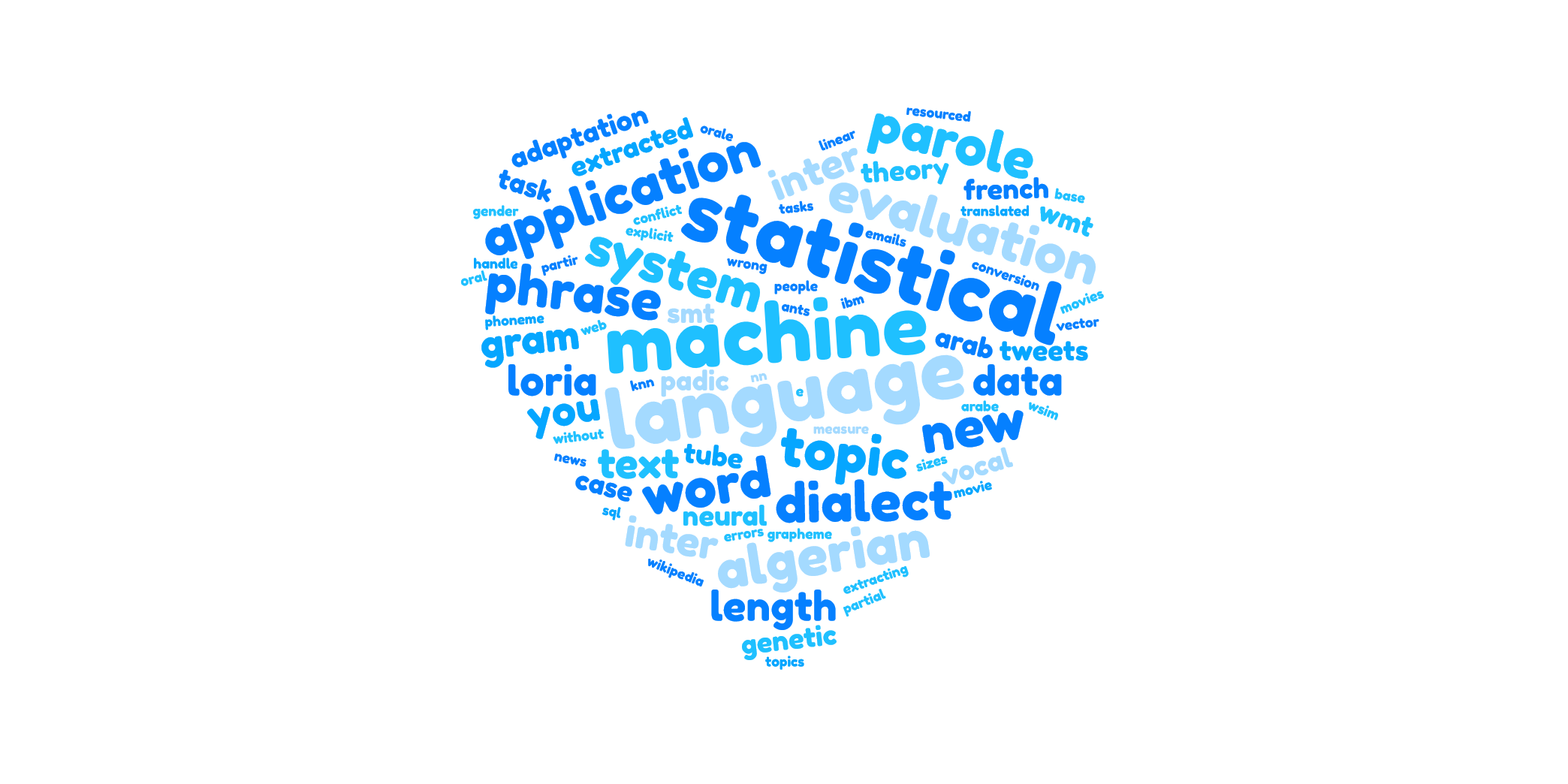SMarT is one of Loria’s teams, it was created on December 2013
The acronym SMART comes in two forms:
Speech Modelisation and Text
Statistical Machine Translation
The objective of SMarT is to model the written or the spoken language (nature or altered) by using Machine Learning techniques.
Research Topics
Keywords
- Machine Translation for under-resourced language
- Automatic musical improvisation
- Recognition of pathological voices
- Code-switching
- Language identification
- Large Langue models
- Fakes news
Keywords: Language Modelling, Machine Translation, unresourced languages, Estimation quality, Mining comparable corpora, Code-switching, Deep Learning,
voice conversion, enhancement of esophageal speech, pathological speech recognition.

Members
Kamel Smaïli (Professor, Université de Lorraine)
- Anne-Marie MESSAOUDI (CNRS)
- Kamel Smaïli – Professor (Université de Lorraine)
- David Langlois – Associate professor (Université de Lorraine – ESPE)
- Joseph Di Martino – Associate professor (Université de Lorraine)
- Sahbi Sidhom – Associate professor (Université de Lorraine)
- Chiraz Latiri – Professor (University of Tunis – Tunisia)
- Karima Meftouh – Assistant Professor (University of Badji Mokhtar, Annaba – Algeria)
- Salima Harrat – Assistant Professor (ENS – Algiers, Algeria)
- 2019-: Fadi ghawanmeh (co-supervision with University of Oslo, Norway) Machine translation of Music
- 2020-2024: Yohannes Biadgligne (University of Sudan) Amharic Machine Translation
- 2022-2025: Abdellah Hamouda Sidhoum (Algeria) Arabic Complex Question-Answering
- 2022-2025: Ouahab Hocini Detecting misinformation on social networks
- 2023-2026: Yacine Toughrai Monitoring false information across social networks.